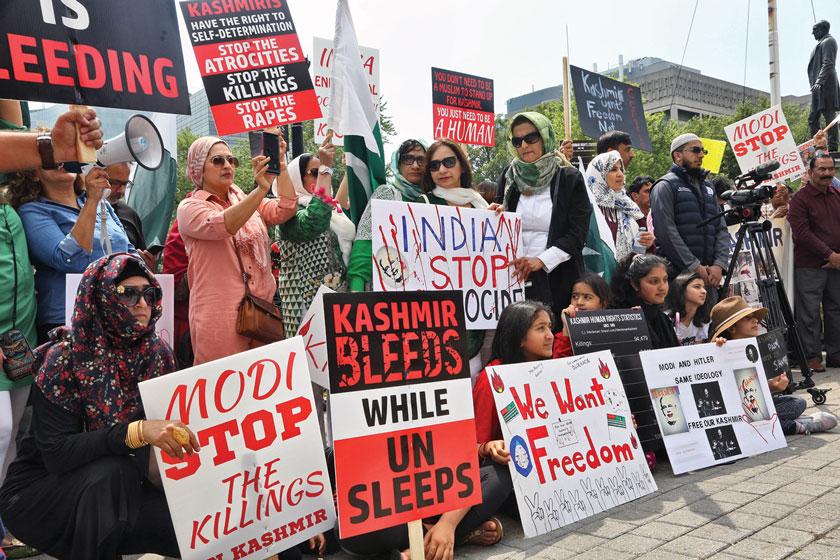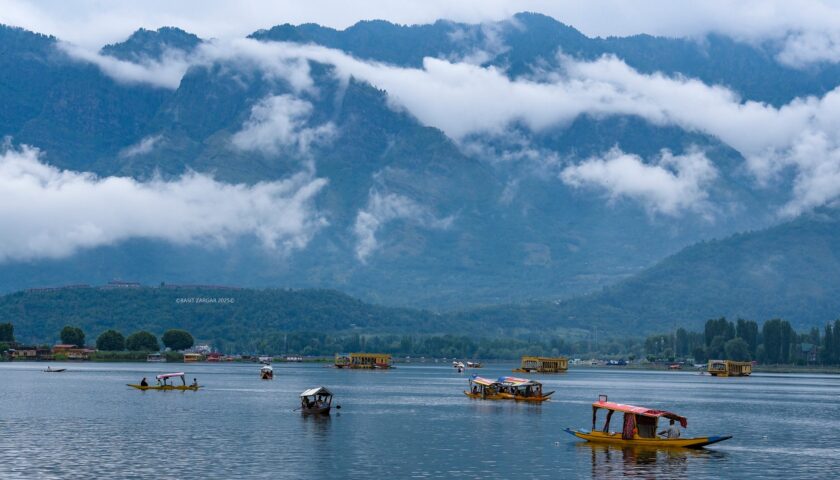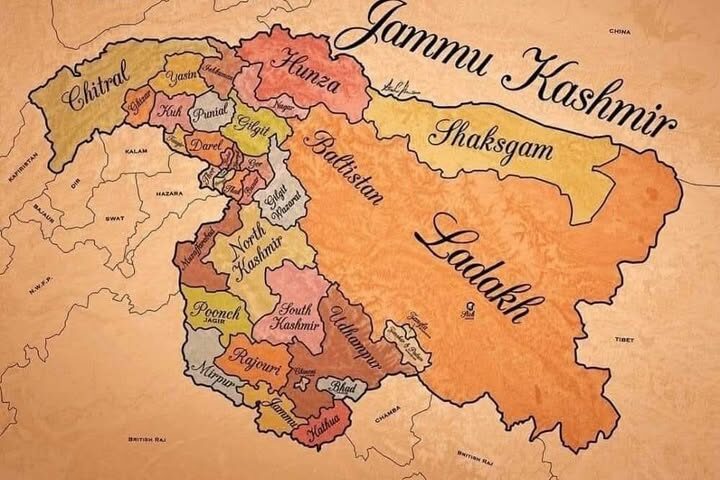Danish Geelani
“As the world battles the Covid-19 pandemic amid a global race to stop its spread, India has passed a new law in Kashmir which residents fear will change the demographic status of the Muslim-majority territory.
The new domicile law announced by India’s Ministry of Home Affairs on 1 April grants permanent residency rights, which entails owning and buying property and access to government jobs, for anyone who has resided in Indian-administered Kashmir for a period of 15 years.
The move has sparked anger in the contested region, with civilians from a range of political opinions questioning its intent and timing. Many believe India has taken advantage of the coronavirus pandemic to permanently change Kashmir’s demographics.
The law will surely lead to cultural loss and will shake our heritage and age old ethos. By giving thousands of non-resident families’ resident rights and domicile status the demographic scenario of the region will certainly change drastically. It will have great repercussion for the native population, and for their cultural ethos. Our cultural is certainly rich but not enough strong to resist the foreign inroads. Ultimately we will witness a cultural shock as the dominant foreign culture will overshadow the indigenous culture.
The law came as a catastrophe for the youth of Jammu and Kashmir as they saw their already mere chances drowning. This was more shocking to the youth of Jammu region as that region has always been loyal and patriotic to India. There are more than two and a half lakh educated unemployed youth in Jammu and Kashmir. Due to large scale unemployment, this talented and educated youth is victim of social stigmatization, helplessness and psychological distress. To be an educated unemployed person is a big crime in our society as one has to face so many problems like social disaffection in matters like marriage and one has to face psychological tortures like low prestige due to being dependent on someone else. The private sector as a ray of hope is unfortunately worth keeping on ventilator in Jammu and Kashmir as it is hardly in a position to offer any solace to the disconsolate youth of Kashmir.
What this domicile law means to the unemployed and budding youth of Kashmir is not less than slap. The already frustrated youth who are suffers of ill fate and worst political agony has been simply thrown from a Frying Pain to the Fire. The law has added more to the frustration of the youth. Consequently it will lead to more escalation and alienation. The newly introduced law will give birth to more radicalization and there will be a great set back to the ongoing peace process in the region. There has always been a gap between the people, particularly youth of the Valley and the Centre. We have been trapped and promised time and again but nothing positive has came to our way ever. We have been disappointed time and again by the centre and our gains have been like much ado about nothing.
A wave of despair and hopelessness is all what one can see at the moment all across the Valley. The youth has been pushed to the wall and have been left with rare options. Instead of giving anything we have been snatched whatever we had. Our ethos, identity and culture has already been erased and robbed.
“Over the past seven decades, India has robbed us, strangled our aspirations, and now our land, culture, environment and identity are in danger.”
Comparing the new domicile law with settlements in the occupied West Bank, residents and critics said India is copying the Israeli model in Kashmir.
“In short, the domicile law fulfils two goals – colonisation of Kashmir and Hindu-majoritarian transformation of India.”
Scraping of special status and abrogation of Article 370 and 35A were in the political agenda of BJP since decades. And even people voted BJP for this. In a country like India it is very easy to befool anyone as people here hardly put their mind and reason into action, rather leave everything to their emotions and affiliations to decide. The recent development of domicile law is also part of BJP’s agenda. The saffron fans are trying to their best to justify and portray it in good colours but are failing miserably as the law has got widespread criticism. It was after this persistent criticism; the centre amended the law and deleted the part pertaining to employment to non-residents. It may be after this criticism but it might have been the policy of the centre to kill two birds with a single stone as the law even after amendment is in no way in favour or beneficial to the people of the region. The amendment is like pulling out one eye instead of two. There may be some relief in employment segment but from the demographic, socio-cultural and identity point of view it is precarious as it was before amendment. The demographic flooding of Indians, including additional military forces, bureaucrats, government officials, as well as private sector employees and citizens will change the whole structure of population in Kashmir. As it is believed, “Israeli-like” settlements can now be introduced in J&K making the region’s Muslim-majority into second-class citizens, a demographic minority, & pave way for ethnic cleansing. The Demographic flooding will in turn impact the results of a potential plebiscite or referendum in India’s favor.
What do these changes mean for Kashmir?
Land can be transferred to non-J&K residents, who can now permanently reside there
Tens of thousands of Indian citizens can now apply for government jobs in J&K
Demographic flooding of Indians, including additional military forces, bureaucrats, government officials, as well as private sector employees and citizens
As suggested by Indian officials,“Israeli-like” settlements can now be introduced in J&K making the region’s Muslim-majority into second-class citizens, a demographic minority, & pave way for ethnic cleansing
Demographic flooding will impact the results of a potential plebiscite or referendum in India’s favor.
Indian companies can now grab local land that could have been used for public facilities like building hospitals or schools.
With subsequent legislation, the government may also continue to re-define domicile to mean changes in land ownership rules, as well as changes in the electorate.
“The objective always was to turn the Muslim majority in the region into minority. And India has set about accomplishing it, not even waiting for the coronavirus pandemic to pass.”




